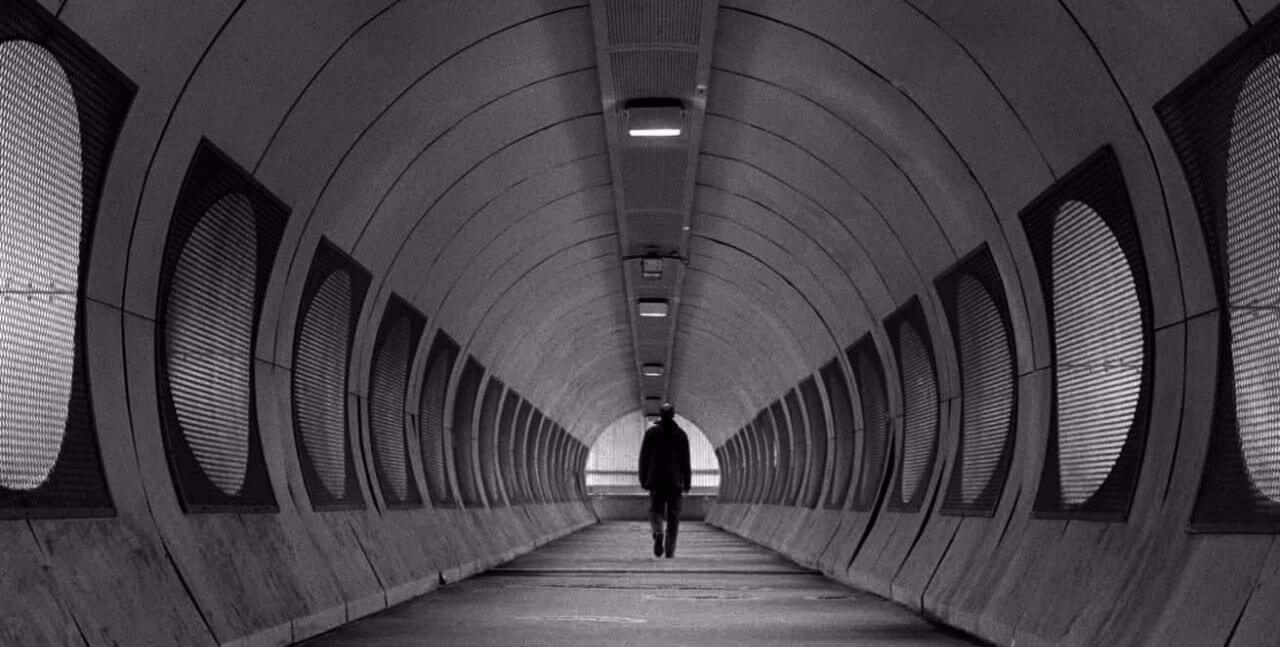Grain [2017] is the new film from Semih Kaplanoğlu, widely hailed as one of the visionaries of contemporary Turkish cinema. Before Grain, Kaplanoğlu completed the “Yusuf trilogy” consisting of the films Egg (2007), Milk (2008) and Honey (2010). The Yusuf trilogy was a quiet exploration of the titular character Yusuf’s life, with a focus on the natural environment surrounding him. This time, Kaplanoğlu continues with the theme of nature but opts for quite a different touch. Shot in high-definition monochrome, Grain is a moody depiction of a post-apocalyptic world where food is scarce. The world is divided into the slightly better-off cities and the barren rural areas called the Dead Zone. The questions Kaplanoğlu asks are poignant, and the cinematography is gorgeous, but the film doesn’t quite manage to justify its length. For those who like meditative cinema, it is a compelling watch nonetheless.
Science vs. spirituality. The film’s setting is a near-future dystopia, where the environment has deteriorated and food resources are scarce. The main character Errol (Jean-Marc Barr) is a scientist working for the large corporation in charge of developing genetically modified seeds which can still thrive in the harsh environment. Yet another crisis looms, as the GMO seeds have begun to self-destruct. Errol hears of a subversive former colleague, who has left behind his life in the city and escaped into the Dead Zone, where nothing thrives. Errol feels compelled to seek this man out and listen to his story. Following in the footsteps of Tarkovsky’s Stalker, Kaplanoğlu takes viewers on a meditative journey through the “Dead Zone”. The central theme is humanity’s dysfunctional relationship with nature. “By modifying seeds and destroying nature, we destroy ourselves”, a character in the film argues. For Errol, there is an obvious conflict between this view and his role as a scientist. It’s safe to say, there are no easy answers for him or for the viewer. In the beginning, the film has the feeling of a science-fiction thriller tackling some important themes, but it quickly becomes clear the plot is subjugated to philosophical musing. As the film progresses, the spiritual elements come to the forefront. Kaplanoğlu wants us to contemplate taking a step back from modernity to regain a spiritual connection with nature. Depending on your viewpoint, you might find this inspirational or irritating new-age nonsense. Personally, I found this a similar experience to the aforementioned Stalker – I left thinking a more spiritual person would probably get more out of the film.
Monotonous beauty. The philosophical views presented in Grain might be divisive, but the gorgeous cinematography can be appreciated more easily. Filmed in locations including Michigan, USA, and Anatolia, Turkey, cinematographer Giles Nuttgens’ work here is stunning. Especially the Anatolian vistas, displayed in sharp shades of black, white and grey, are breathtaking. The decision to shoot the film in monochrome makes sense considering the post-apocalyptic setting and the themes of the film, although I must admit I was hoping some colours would be utilised as an emphasis (like masterfully done in, once again, Stalker, which really seems like this film’s spiritual predecessor in so many ways). Of course, in Stalker, the Zone represented a frontier of dreams and memories, whereas the Dead Zone of Grain is the grim embodiment of agricultural failure and societal breakdown. Instead of colors, there are acid rain, lakes filled with dead bodies floating on the surface, endless rocks and mountains, broken-down vehicles and abandoned houses. The unending lack of colors does suit the film’s bleak perspective, and Nuttgens manages to make the vastness of Anatolia seem truly apocalyptic. As the film runs for 127 minutes, it all seems to get rather monotonous, but I suppose this is meditative in its own way.
Grain sets out asking important questions of food security and humanity’s relationship to nature, but instead of seeking answers, the narrative burrows deeper and deeper into esoteric meditation. This is a film for those who are into such spiritual musings – if you’re looking for a sci-fi thriller, you might find yourself appreciating the stunning cinematography, but not much else. Fans of Stalker might also appreciate this foray into the Dead Zone.

